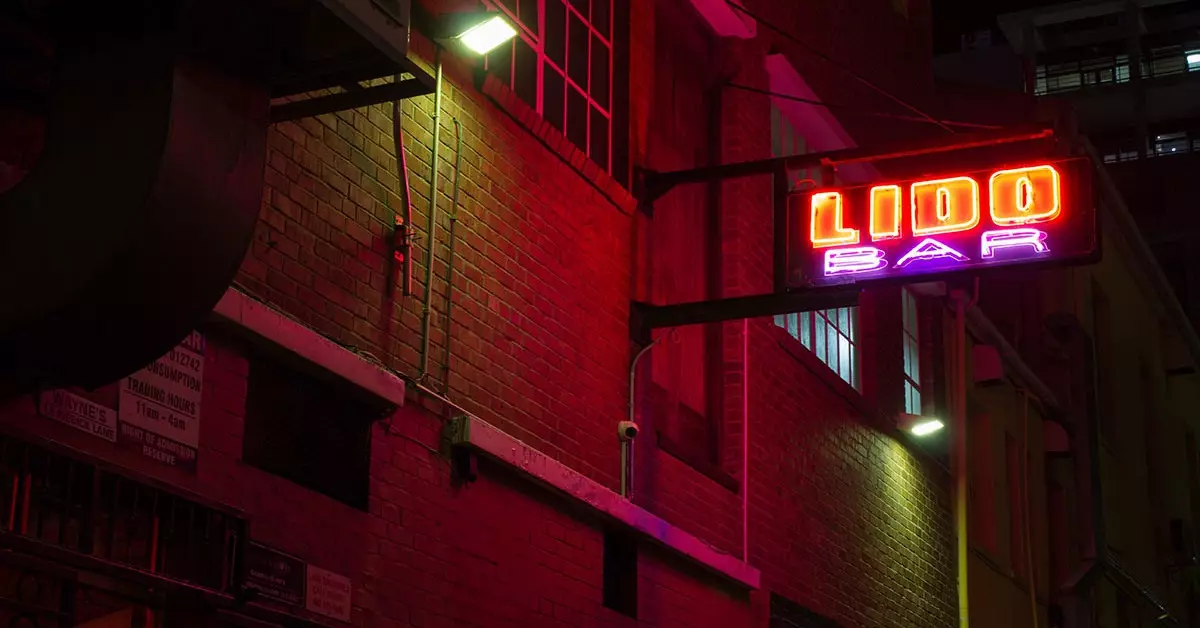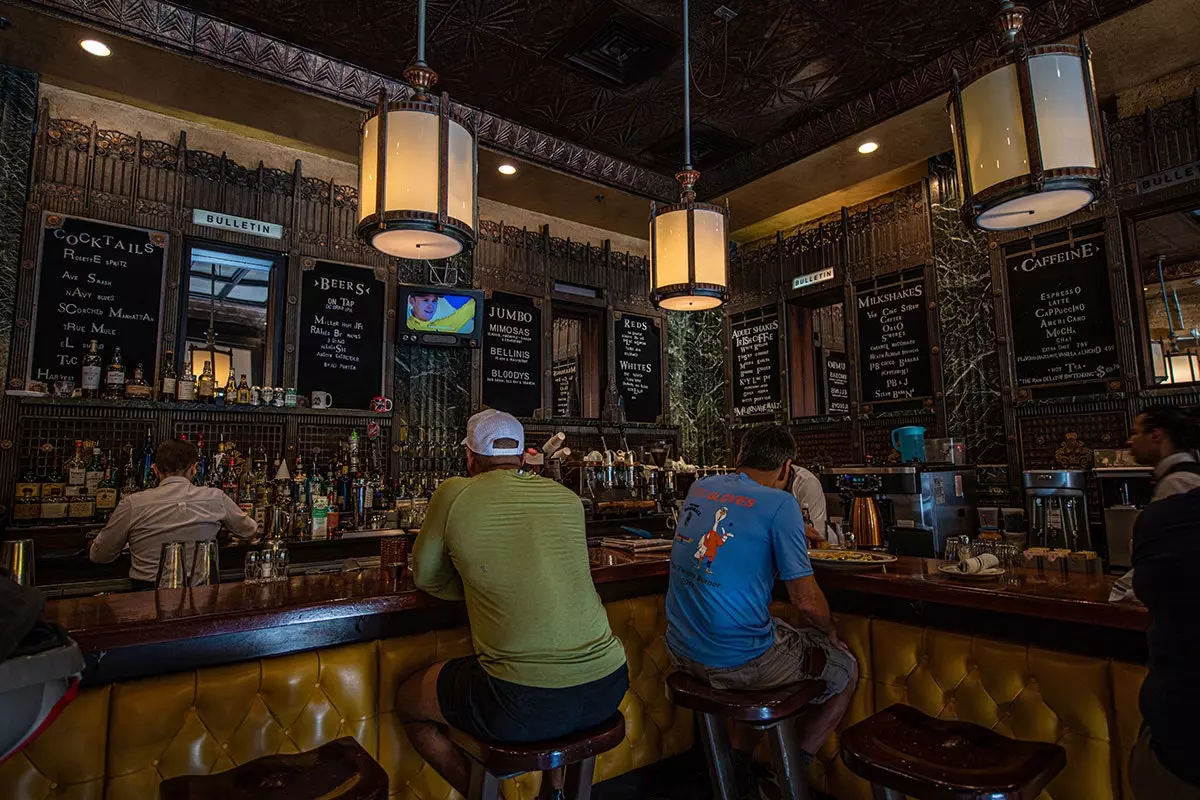
When Jimmy's Corner temporarily closed its doors on March 13, 2020, it was a blow to New Yorkers. As much as when they did Broadway theaters with which it shares the street. The bar, named after its owner, Jimmy Glenn, a famous boxer and trainer , had been open for fifty years in its legendary Midtown cramped quarters and serving everyone from lost tourists to frazzled office workers to Frank Sinatra and Michael Jordan. The menu - made up of cold beer, strong spirits and little else – was the cheapest you could find in Manhattan.
Even at the age of 89, Glenn could be seen sitting on one of the bar stools, posters and memorabilia from his illustrious career hanging behind him. Jimmy's Corner was a special place because it defied any threat, remaining unique and without any frills in the core of an ever-changing Times Square.
On May 7, Glenn died of complications from the coronavirus . Funeral services were streamed on the bar's Facebook page a few days later. One follower commented: “If we weren't confined this funeral would have been packed to the brim. I have never met a man more beloved than Glenn and I have never met someone who gave as much love as he did.
American dive bars are hard to define , but they are recognized when they are seen. The tables are too close together. The floors are sticky. Many times there are, and inexplicably, Christmas lights as decoration. They rarely sell food beyond a bowl of bagged snacks, and if you're lucky they usually have a jukebox . The best have been around for decades, like Jimmy's, always with an owner who has known how to anchor the past of an entire neighborhood to its present.
Some of my favorite travel memories have taken place at a dive bar: A night out karaoke at Santa's Pub in Nashville; shots whiskey at Snake and Jakes in New Orleans; a wedding afterparty in Matador, in Santa Fe. They're places where you sit back and commiserate with your co-workers after a shitty day, but also where you sing Islands in the Stream at four in the morning with complete strangers.
However, all those things that give dive bars their indisputable character are also those that put them in danger in the face of the social distance and the pandemic . And what they are suffering from. Cocktail bars and restaurants have been able to adapt to the situation with patios and outdoor menus , without having to lose your identity. But the DNA of a dive bar lives in its dark interiors.
“The dive bars they were already in danger of extinction and sadly, more of our favorites will start to close in the coming months,” says Brad Parsons, Brooklyn-based writer and author of Bitters, Amaro, Last Call and Dives. “If you are a bar, your only option is to give drinks to take away or serve on a terrace , and these are just the two things that are not in the spirit of a dive bar."
Like many other bars across the country, Joe Jost's in Long Beach , California, has had to play around with new legislation to be able to open, putting folding tables and chairs in the parking lot and serving beer to a small crowd – something only made possible by the fact that it has a famous hot dog and pickled egg menu–.
Almost a hundred years old, the bar is a long beach emblem , having been the setting for advertisements for Levi's or Budweiser, as well as for one of the scenes from the movie The Bodyguard. But it hasn't been without problems either. During the Depression, its founder, Joe Jost, a Hungarian immigrant, turned off his lights to save electricity, turning them on only when he heard a potential customer approaching in a car.
But even with its storied past and a Paycheck Protection Program (PPP) loan – a government-enabled loan for businesses during the pandemic – things are not being easy.
“How they gave us the PPP loan we have not had to lay off our employees ”, says Jost's grandson, Ken Buck. “However, my team would have been much better off if we had done it because they would have been able to collect severance pay and an extra $600 a week,” he says. Still, there's comfort in knowing that Joe Jost's continues to have a purpose. “We represent the stability that a lot of people are waiting for him to come back,” says Buck.
While Joe Jost's has been able to reopen, others have decided not to. Santa's , for example, has been closed since mid-March. Meanwhile, his owner Denzel Santa Irwin keep paying all your employees from the month of July.
For many bartenders, whose presence in bars gives patrons that sense of stability mentioned by Buck, work is getting close to zero. “We are all trying to find a way to survive,” says Nixie Bombardier, who has been behind a bar for five years in New Orleans bars like The Saint or One Eyed Jacks. “The waiters had already seen a decline in our salaries in recent years. None of us are sure of our future once all this is over."
With more and more dive bars teetering on the precipice of a shutdown, the answer to the question of what American cities will be like without them is one of the most prescient. “You go to a bar because** you know all your friends are going to be there**,” says Bombardier. “But also because they offer a bit of culture and the new orleans mysticism that travelers who have come this far seek to find”.
A glimpse of that future can be seen in the New York's East Village , which currently seems like a neighborhood without a soul. Many of its dives have been closed, including Sophie's and Mona's , leaving in darkness the streets that saw them shine.
With the pandemic still raging and court orders proving unfeasible for many, residents like blogger E.V. Grievef fear that neighborhoods are affected , taking the spirit of the city along the way. “The neighborhood bars they give the city its personality and give the communities they serve a voice. I am always disappointed when I travel to other towns or cities and find that the local bars are franchises or generic pubs that serve beer that you can drink anywhere.
The creator of the Vanishing New York blog, which documents the changes and closures of a “city that has been coupled to serve the rich” , shares Grieve's concerns. But a drink in Vazac's Horseshoe Bar It has given him new hope. “The drive-through window was original and fun. It was a little anarchic and wild that they give you your drink in a plastic cup and drink it in the park. It was like the pre-Giuliani era, before public drinking was banned."
Still, the drinks to go they still don't fill the void of walking into a strange, dimly lit bar in a new city. And it definitely doesn't replace that either. neighborhood bar that functions as an extension of the living room at home.

Ted's Bulletin, in Washington D.C.
“I live above Montero's , a bar that used to be the waterfront workers in Brooklyn Heights,” says Parsons. I can see your famous neon through the windows and I really miss its red glow illuminating my flat. I'd love to be able to go down and get the mail at the bar like I used to...and have a beer or two."
It's customers like Parsons who will give bars personality and "spirit" when they do reopen, Grieve thinks. And if this is the case, perhaps all is not lost. On the contrary, those who manage to get ahead will function as the core of an entire community within their own cities. And for those Travellers , who will offer a place to have a drink and, more importantly, give them the opportunity to rub shoulders with strangers.
“Dive bars are democratic and egalitarian places Moss says. “You don't need a lot of money to be there. You don't need to be well dressed or handsome. You can be poor, ugly, eccentric, poorly dressed... and you will always be welcome in them”.
